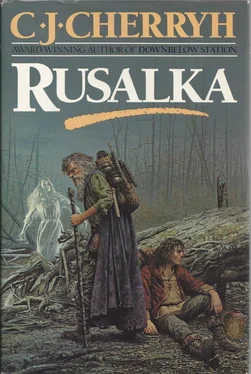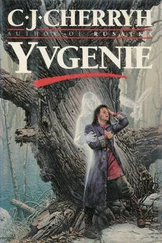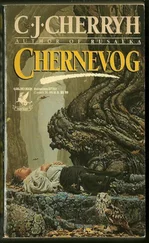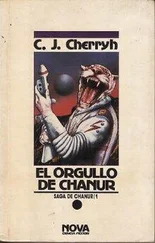One had either blindly to discount them—the action of a fooler wisely to unravel them, which di4 not look to be a study of a handful of days.
Of course he could walk out of this woods. He could quite possibly look at the ladies of Kiev in years to come and not compare them too unfavorably with Eveshka’s ethereal beauty. And between his light-fingered talent and Sasha’s odd ability, he reckoned the two of them could make a tolerably comfortable living in a world of natural men and ordinary risks.
But he would always know there were other rules, and that at some fatal moment they could intervene and tip a balance he thought he had calculated.
It would always be a possibility, even in Kiev, particularly as long as he had Sasha Misurov in his vicinity. There might have been things even in Vojvoda he had been fortunate not to have come afoul of; and one of Vojvoda’s wizards might have-No. Absolutely not. There was no wizardry at all in old Yurishev’s death, and nothing but his own stupidity had brought him to that pass.
Unless—
Unless Sasha, the stableboy at The Cockerel, had, in a momentary slip, wished very, very hard to escape his lot, or to find a friend, or to understand what he felt he was—
Or he might once have wished that a real wizard would someday teach him how to handle that deadly gift of his—
Who knew?
God, maybe Uulamets himself had wished—had wished someone like Sasha to help him.
Who was safe anywhere in the world, if wizards could put a thumb on any balance, years and leagues away?
He wanted, damn it all, to understand what he was involved in before he left the place most likely to have the answers, and to know for a certainty whether he had any free will left, even in the choice to go or stay.
In the morning Eveshka was up before any of them: Sasha heard the rattle of a spoon, lifted his head and saw that Eveshka was mixing something in a large bowl. Beside him Pyetr was quite soundly sleeping, and Eveshka smiled and waggled her fingers at him to bid him lie down and take a little more sleep himself.
Certainly he had no wish to deal with her alone, Uulamets being still abed. It seemed far safer to take advantage of a little more sleep, so he ducked down in the quilts against the morning chill and shut his eyes.
It seemed only a moment later that he woke with the smell of cakes cooking: he could see past the table legs and the bench a three-legged iron griddle standing in the embers; and Eveshka was turning the cakes, talking to her father, who was up and dressing, and saying she had missed the taste of food.
It somewhat gave one a queasy feeling, thinking about rusalkas, and wondering exactly in what fashion they did sustain themselves, or what exactly her appetites had been.
But he decided he could no longer claim to be asleep, so he gathered himself up and waked Pyetr.
“Our lie-abeds,” Uulamets greeted them cheerfully enough, though Pyetr muttered under his breath that he was due a little lying abed after carrying the old man home yesterday.
“We owe our young friends,” Uulamets said, and took his daughter by the hand and introduced them each by their proper names, which attention embarrassed Sasha: no one to his recollection had ever introduced him to anyone, since everybody who ever came to The Cockerel had already known him—or had no interest in whether the stableboy had a name. He hardly knew what to do, except to look up at the girl with his face gone burning hot and, he was sure, quite red; while Pyetr in his turn made a bow and said he had never seen anyone so beautiful, not even the finest ladies in Vojvoda.
At which Eveshka looked pleased, and Eveshka was the one who blushed in that exchange, then exclaimed about her cakes and quickly rescued the griddle from the fire and dumped them onto the waiting plate.
“They’re not burned,” she said with a little sigh. “Go, go, everyone wash up. I’ll make the tea.”
They were wonderful flatcakes, better than aunt Ilenka’s, Sasha thought: there were two apiece, with tart dried berries he had not himself discovered in Uulamets’ jars, and every crumb disappeared. Uulamets said Eveshka’s mother had used to make cakes like that, and Eveshka smiled and laid her hand on her father’s as they sat together at the table.
Altogether Uulamets looked very tired, worn to the bone by the last two days, but he looked changed in a better way, too—as if he had let go all the bitterness and the anger he had, and suddenly remembered, with Eveshka in the house, a kinder way of dealing with people. He set his hand over his daughter’s and said to them, “I have to explain to you. There was so little I could honestly explain, there was so little I really knew, myself, except that Eveshka—” He pressed her fingers gently. “Eveshka might have run away from me. That wasn’t the case. But I feared it might be, and if it had been, it would have been all but impossible to bring her back.”
“Papa had a student, Kavi,” Eveshka said. “Long ago. I was very young—very foolish. I believed he was innocent of the things papa said. He was very handsome. Very persuasive. But when I did find it out, I was so—” Eveshka. looked down, then looked at her father. “I was so embarrassed. You were absolutely right. But I was too ashamed to say so. That was why I left that morning. I only wanted to sit down on the dock and think a while. Then the vodyanoi—”
Tears clouded her eyes and she stopped talking. Sasha sat there beside Pyetr wishing he knew what to do or say to an upset girl who had—he began to realize—been a ghost for perhaps more years than he had been alive, and who was at once a girl of sixteen and much, much older. His stomach felt upset. He remembered the vodyanoi and its malice and felt doubly upset, thinking of Eveshka dragged down into that watery cave.
“I was afraid,” Uulamets said quietly, “that she’d killed herself—or that that scoundrel had murdered her. I put nothing past Kavi Chernevog, absolutely nothing.” He patted Eveshka’s hand. “But you’re back. That’s all. To the black god with Kavi Chernevog. Do you know, I tried to keep your garden, but I’m afraid all I have luck with is turnips.”
Eveshka dried her eyes with her knuckle and suddenly laughed.
“It’s all there is to eat around here,” Pyetr said, and Uulamets frowned. “But,” Pyetr went on irrepressibly, “I can say this place has brightened considerably since yesterday.”
The compliment pleased Eveshka. It clearly did not please Uulamets, who immediately stood up and suggested they clear away the dishes and straighten up the house.
Chests in the cellar gave up blankets and clothes—Eveshka’s own, one supposed; and more shirts and trousers, fine ones, all of 3 . size. Eveshka ordered a rope strung from the bathhouse to the porch and ordered the laundry tubs rolled out—which activity trampled into submission the weeds around the bathhouse, and meant, Sasha foresaw it, an incredible number of heavy buckets carried up the hill.
But this time—Sasha had not expected it—Pyetr bestirred himself to help, even taking the harder part of the course, carrying the buckets to the top of the muddy, root-laddered path from the river and letting Sasha carry them across the yard to the bathhouse.
Pyetr wore his sword while he was doing this, by which Sasha knew exactly the danger Pyetr was thinking about. Pyetr did not go down to the river with one bucket while he was delivering the other: Pyetr took the harder way, carrying both at a time, then sat on a tree root and waited for him to bring the buckets back, a choice which kept them always in sight of each other, and that, too, said that Pyetr was concerned.
So was he, out under a clear sky, with time enough to get a breath of rain-chilled morning air and to consider that they had had an uncommon amount of good luck in the last couple of days. He was tempted to congratulate himself: perhaps Uulamets’ few pieces of advice had helped him manage his gift; or perhaps, as Uulamets had said, it was at least possible to stifle one’s ability, to keep a tight grip on it in crises—
Читать дальше







